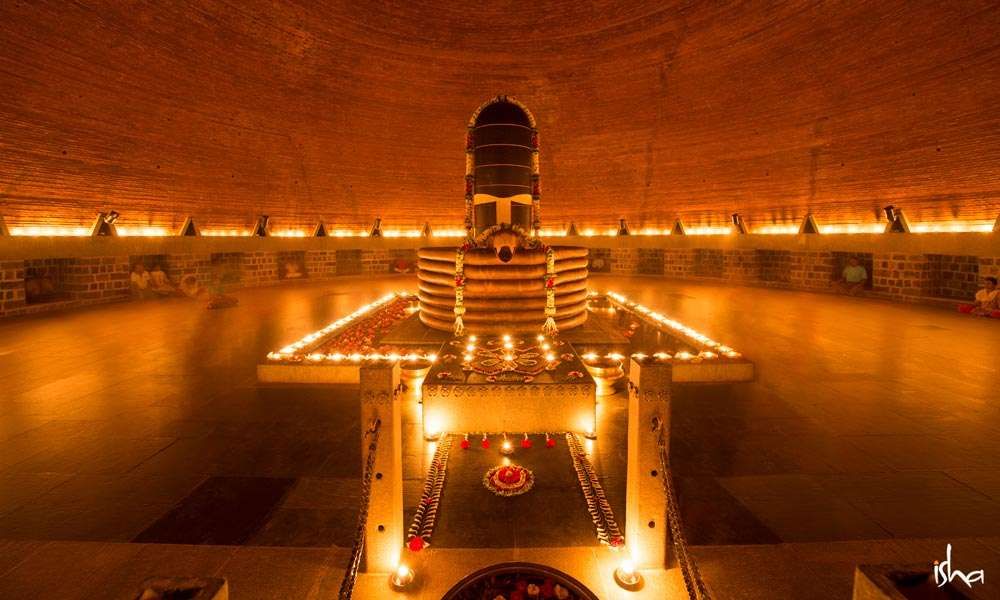Dhyanalinga – A Possibility to Experience Life in its Totality
Sadhguru probes deeper into the science and purpose behind Dhyanalinga.

Questioner: Sadhguru, you say that the Dhyanalinga offers the possibility for each human being to experience life in its totality. Can you tell us how?
Sadhguru: I think we need to bring some understanding of the science behind the Dhyanalinga. In the yogic tradition, this whole aspect of what we call as Shiva and Shakti is about the duality of life. When you experience life through your sense perceptions, the experience of it is in a certain duality. It is this duality which is traditionally personified as Shiva and Shakti, the Ardhanarishwara. In yoga, we call this the Ida and Pingala, and in the far eastern culture as yin and yang. You can also call it the feminine and masculine or the intuitive and logical aspect of oneself. These are the two dimensions in which you and the world around you exist. It is based on this duality that all religious sciences have grown. Based on this, life is created; without these two dualities, life does not exist as it is right now.
In the beginning, everything was primordial; there was no duality, but once creation happened, there was duality. To experience and limit you to this duality is the reason why there are sense organs. You experience everything through your senses: seeing, smelling, tasting, hearing and touching. These sense organs manifest and enhance the sense of duality in the world. The sense of light and dark, good and bad, pleasant and unpleasant is what makes everything appear more established. As you get more involved with the sense perception, and think and feel life, the duality only gets deeper.
Now is there something wrong with the duality? That’s not the point. Without duality, there is no creation. It’s only because of these opposites that creation happened, but to be trapped within the duality is the problem. If one is limited to the duality, one does not know the beyond. It then becomes a great limitation in your life. Duality is the source of all the pleasures in the world. If there were no opposites, there would be no pleasures. At the same time, duality is the source for all suffering in the world. It is only because of these opposites that man suffers. Caught in this “pleasure and pain” experience of life, people get wounded by life. They don’t become wise with life, they become wounded by it. They are not able to handle this duality, nor are they able to transcend it.
When you have limited yourself to your sense perceptions, you’re bound by this duality; you can’t help it. The sense organs seem to be an access to freedom. Your eyes, for example – your vision seems to be your freedom. If you have no eyes, you have no experience of the outside, but it is the eye which is limiting you in so many ways. The eye is like a window to your body; it’s through this window that you can look out. This window seems to be a great possibility, but the window is also a limitation for you. If you remove this limitation, then you will observe that it’s not the eyes that see; it’s you who sees. Your eyes are only an opening to the world. So sense perceptions are just a small opening and at the same time a great bondage within yourself.
The process or science of the Dhyanalinga is an establishment of the exuberance of the duality of life. Through the nadis of the Ida and Pingala, through the seven chakras and the wide range of manifestation and experience, life has happened. The many forms of life, the many levels of life, the many ways of experiencing life are there in the world only because of this duality and the seven chakras or the seven dimensions of life. The Dhyanalinga is manifested on all of these levels, but its purpose is to help a person go beyond this duality. We are not against sense perception, but seeing the limitation that it is, one needs to go beyond that. Through this manifestation of Ida and Pingala or Shiva and Shakti, both dimensions – the logical and the intuitive – can be enjoyed and experienced. Knowing that both the logical and the intuitive are not sufficient, one has to know that which is beyond this, which in yoga we refer to as pratibha, where you are neither intuitive nor logical. You have a direct perception of the world the way it is. You experience life simply the way it is, not through the interpretation of the senses.
Subscribe



